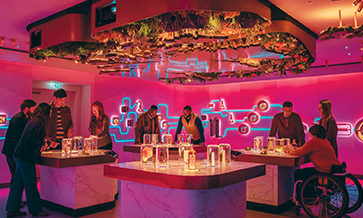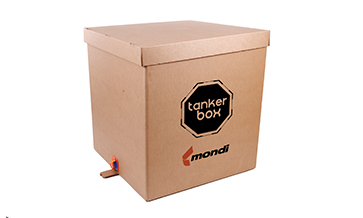Excerpts of the Panel Discussion on ‘Technology Solutions: Make in India or Global sourcing?’ It was held during Craft Drinks India (3 July, 2019) in Bengaluru
In the years preceding 2008, people in India had never heard of micro-breweries, and importing them from abroad was prohibitively expensive. “Today, however, there are people selling it from China, the US, Europe – and India has one of the finest machinery manufacturers too,” according to Pratekk Chturvedi, Co-Founder of the Ministry of Beer, who acted as the moderator.
Anand Virmani, Co-Founder and CEO of Nao Spirits remembered that when his started its venture, they never had an idea that their equipment could be sourced from India. The company had to source equipment from Hungary.
Charnelle Martins, Head of Distillery Operations at Third Eye Distillery in Goa, said her company was looking for equipment that was technologically advanced, versatile and easy to use for manufacturing of their gin, Stranger & Sons. Such equipment was not available in India, she said.
Aditya Challa, Founder of Susegado (Goa), recalled that the first brewery his company bought was a hybrid system. The tanks were made in China and other equipment was ordered from in San Diego, US. The design and the quality were good.
The second brewery was from a Bengaluru-based manufacturer; while Susegado’s third brewery equipment is again a hybrid of US and Chinese machinery.
“The key aspects are design, quality and value for money,” Aditya insisted. “In India the manufacturers have good quality, but the design aspect is not so good. The choices of design in brewery are more in the US. Most of the small breweries available in India are scaled-down models of large breweries.”
Regan Henriques, Managing Partner at Goa-based Rhea Distilleries, sided with locally sourced equipment. “Our pumps and decanters have been sourced from Alfa Laval, which imported them.
Weighing options
What are the parameters to be kept in mind while going in for purchase of equipment, Pratekk wanted to know.
Anand admitted that since his partners did not have a technical background, they had a lot of consultants advising them. Feelers were sent to more than five equipment suppliers, and it took more than a year to narrow down their options. Finally we went with a company that was supportive and assured good after-sales service.
Charnelle noted that in India all brewery manufacturers cater mainly to big breweries, with little expertise in the mid and small segments. “By going abroad the options available were aplenty. Suppliers there understand the craft drinks industry. Approaching them became easier as they understood the requirements and had solutions and expertise,” she added.
Noting that Aditya was a first generation entrepreneur, Pratekk wanted to know how he made up his mind. “Foremost, you must hire an experienced brewer before you commence your business. S/he will be on your side for getting the right equipment at the right price,” Aditya replied.
The reputation of the utility supplier for after-sales service should always be looked into before any purchase is made. That said, Aditya cautioned: “Suppliers from abroad need to be made aware of the frequent power fluctuations and difference in water quality across India; only then will they be able to fine-tune their equipment for hassle-free operations.”
Trouble-shooting
On the state of the regulatory framework in India to source technology and brewing/ distilling machinery, Regan said, “The first thing to look into is the build quality of the equipment. Equally important is the quality of the end product that emerges from the plant.”
The operational cost of running the equipment and its scalability and future upgradation are the next important aspects that one needs to look into. “One must also look into the ground realities – such as the climate of the country, availability and quality of raw materials – before finalizing on the machinery.”
Pratekk spoke about investing in the right manpower at the right time is very important. The other thing is you get what you pay for concept.
Noting that the cost of setting up a brewery also has a wide range, one must also bear in mind investing in the right manpower at the right time. What else needs to be done?
Anand had this to share: “We spoke to as many people (in the industry) as possible and visited a lot of distilleries. The equipment offered in Hungary was very user-friendly. Our supplier charged us the installation cost; but the final payment was done only after the equipment was found in good working condition.”
Charnelle of Third Eye Distillery added, “Even though our equipment was sourced from abroad, the after-sales service was excellent. In terms of sourcing additional equipment also there was no hassle.”
Aditya said his first brewery had to be moved from Singapore to Goa and the US vendor helped a lot in getting it done. “The Indian vendor based in Bengaluru was also equally supportive and good to us,” he added.
The experienced Regan of Rhea Distilleries had the last word: “Whether it is a local product or an imported one, problems related to usage of the machinery are many. One needs to be up-to-date with technology and be ready for trouble-shooting at any given point in time.”














